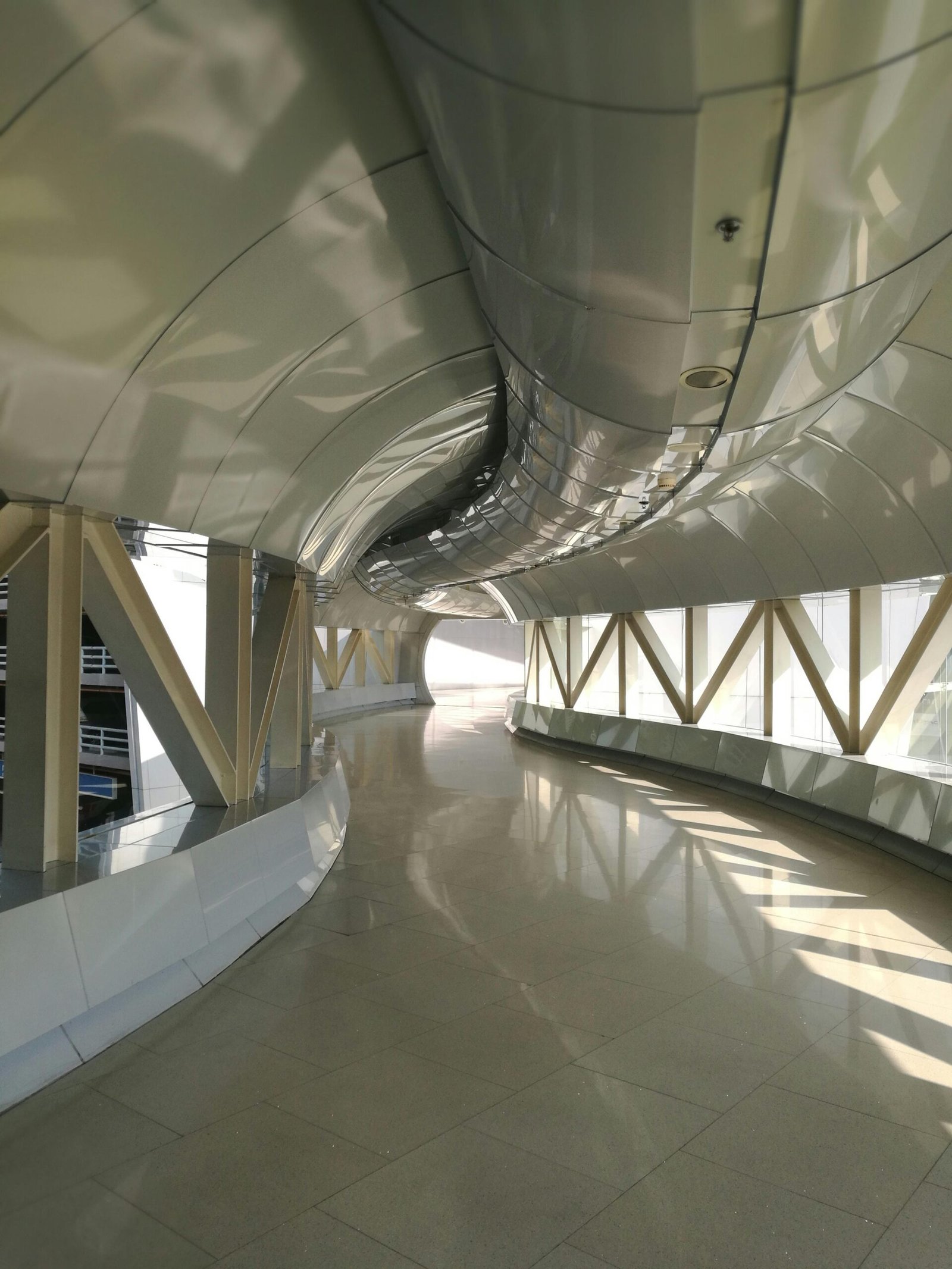Bangkok — In a groundbreaking infrastructure project set to revolutionize the way corruption is conducted in Thailand, a brand-new “Corruption Tunnel” has been completed beneath the streets of Bangkok. The 15-kilometer underground passage, which connects several key government buildings with popular “contract award” meeting points, is designed to increase the speed and efficiency of contract fraud, according to sources who declined to disclose their names but insisted on wearing fancy sunglasses indoors.
At the unveiling ceremony, Thai Prime Minister Paetongtarn Shinawatra said that construction of the tunnel was recently completed and will be available for use by high-ranking puu yai. Government officials were initially worried the tunnel wouldn’t be completed in time, but then remembered that the Kingdom’s corruption season runs year-round, and never ends.
At the unveiling ceremony, Thai Prime Minister Paetongtarn Shinawatra said that construction of the tunnel was recently completed and will be available for use by high-ranking puu yai. Government officials were initially worried the tunnel wouldn’t be completed in time, but then remembered that the Kingdom’s corruption season runs year-round, and never ends.

The Ministry of Infrastructure Innovation and Ethical Efficiency, which oversaw the tunnel’s construction, claims that this new underground “streamlining route” will allow officials to conduct business without the hassle of public scrutiny, journalists asking rude questions, CCTV, or, most importantly, financial oversight.
“This tunnel is a marvel of modern corruption facilitation,” said an unnamed official from the ministry, holding a sack obviously stuffed with baht. “For too long, we’ve been forced to sneak around in the dead of night, juggling bribe money in oversized suitcases. This tunnel will ensure that cash payments, luxury goods, and questionable construction plans can change hands smoothly and securely. We’re even planning to add a snack cart down there for long bribery sessions. This is innovation.”

The project itself is estimated to have cost roughly 10 billion baht, although this figure is reported to have been inflated by approximately 4 billion baht due to “necessary padding” for the officials overseeing the tunnel’s planning. Contractors were “encouraged” to add 200% “service fees” to all bids, which were then graciously awarded by what appears to be a lottery system involving officials’ relatives.
Key Features for “Enhanced Transparency and Efficiency”
The tunnel boasts an impressive array of features intended to improve bribery operations, including:
- Whisper-Quieter Escalators: So officials can speedily descend without alerting the press. Escalators come equipped with noise-canceling carpeting for those really sensitive handoffs.
- ATM Machines That Dispense Bundled Cash Envelopes: Each withdrawal provides perfectly sorted envelopes for all denominations, pre-labeled with suggested donation amounts to kickback to elected officials.
- Bribe-O-Matic Kiosks: A touch-screen system where contractors can submit “project bids” directly into the system, which automatically calculates the minimum bribe required to outbid any competitors.
- Express Lanes for Priority Offenses: To help those with larger “project interests” avoid the usual bottlenecks, express lanes are available for kickbacks exceeding 50 million baht.
“It’s really a win-win,” said the project’s head engineer, whose firm received the lucrative no-bid construction contract. “Government efficiency will go up, the contracting community will stay prosperous, and I’ll finally be able to buy that island I’ve been eyeing in the Maldives. What’s not to love?”
“Boost to Economic Growth,” Officials Claim
The tunnel is anticipated to “significantly boost economic growth,” according to Deputy Minister of Ethical Efficiency Somchai Preechapitak, who explained that streamlining bribery operations would reduce the lag time between bribe payment and project approval. “Now, we can rubber-stamp substandard projects in half the time, with double the budget bloat,” he said, nodding vigorously.
“It’s a time-saver and a money-maker,” he explained, adding that the tunnel is already being used by “hundreds” of high-ranking officials looking to cut travel time between, say, City Hall and the many companies owned by the Crown Property Bureau. “You have no idea how much of my life I used to spend stuck in traffic while transporting shady documents. Now I can even take my golf clubs through there!”
Public Reactions
Reaction among the public has been mixed. Some citizens expressed outrage, claiming the funds should have been used to build schools, hospitals, or, at the very least, pothole-free roads. Others, however, have begun planning “tunnel tours” to catch a glimpse of the country’s most notorious officials as they dash from meeting to meeting.
“I want my children to see firsthand how their government operates,” said one father as he snapped a selfie with the tunnel’s ornate, gold-plated entryway. “After all, this is our heritage now.”
Meanwhile, rumors of similar tunnels in other provinces are swirling, with one anonymous contractor overheard claiming, “The Pattaya branch is already 90% complete—just waiting on the jacuzzi installation.” Plans for luxury corruption “resorts” and even a “VIP underground club” have also been discussed, according to unverified blueprints found accidentally left in the photocopy room of the Ministry of Commerce.
The Ministry of Infrastructure Innovation has reportedly already earmarked funds for expansions, upgrades, and additional corruption tunnels to other key cities. “This is the future of governance,” said an official who requested anonymity, clutching his stack of 1000-baht notes with a gleeful smile.
Administration officials are in discussions to expand the tunnel network by adding other corruption points throughout the kingdom’s 77 provinces.


